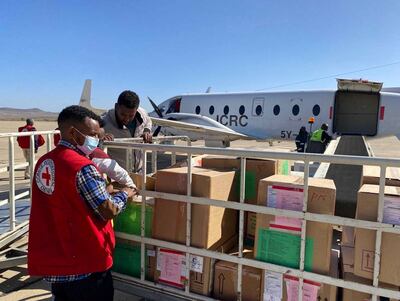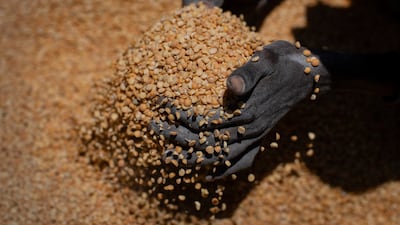Nearly 40 per cent of people in the Tigray region of Ethiopia face "an extreme lack of food", the UN said on Friday.
The figure comes as aid groups are being increasingly forced to halt activities in the war-torn region due to fuel and supply shortages. Fighting in northern Ethiopia is also blocking many aid routes.
"A new food security assessment shows that almost 40 per cent of Tigrayans are suffering an extreme lack of food, after 15 months of conflict," the UN's World Food Programme said.
Earlier on Friday, the UN's humanitarian co-ordination office said all international aid groups in the region were completely out of fuel and had been reduced to delivering assistance to malnourished civilians on foot, AFP reported.
The WFP said 83 per cent of Tigrayans were food-insecure.
"Families are exhausting all means to feed themselves, with three quarters of the population using extreme coping strategies to survive," it said.
"Diets are increasingly impoverished as food items become unavailable and families rely almost exclusively on cereals while limiting portion sizes and the number of meals they eat each day to make whatever food is available stretch further."

The agency also highlighted rising hunger in the neighbouring Amhara and Afar regions, which have also been blighted by fighting in recent months.
"WFP is doing all it can to ensure our convoys with food and medicines make it through the front lines," said the UN group's East Africa director Michael Dunford.
"But if hostilities persist, we need all the parties to the conflict to agree to a humanitarian pause and formally agreed transport corridors, so that supplies can reach the millions besieged by hunger."
Fighting broke out in Tigray in November 2020. The region of six million people has been subject to what the UN describes as a de facto blockade for months.

